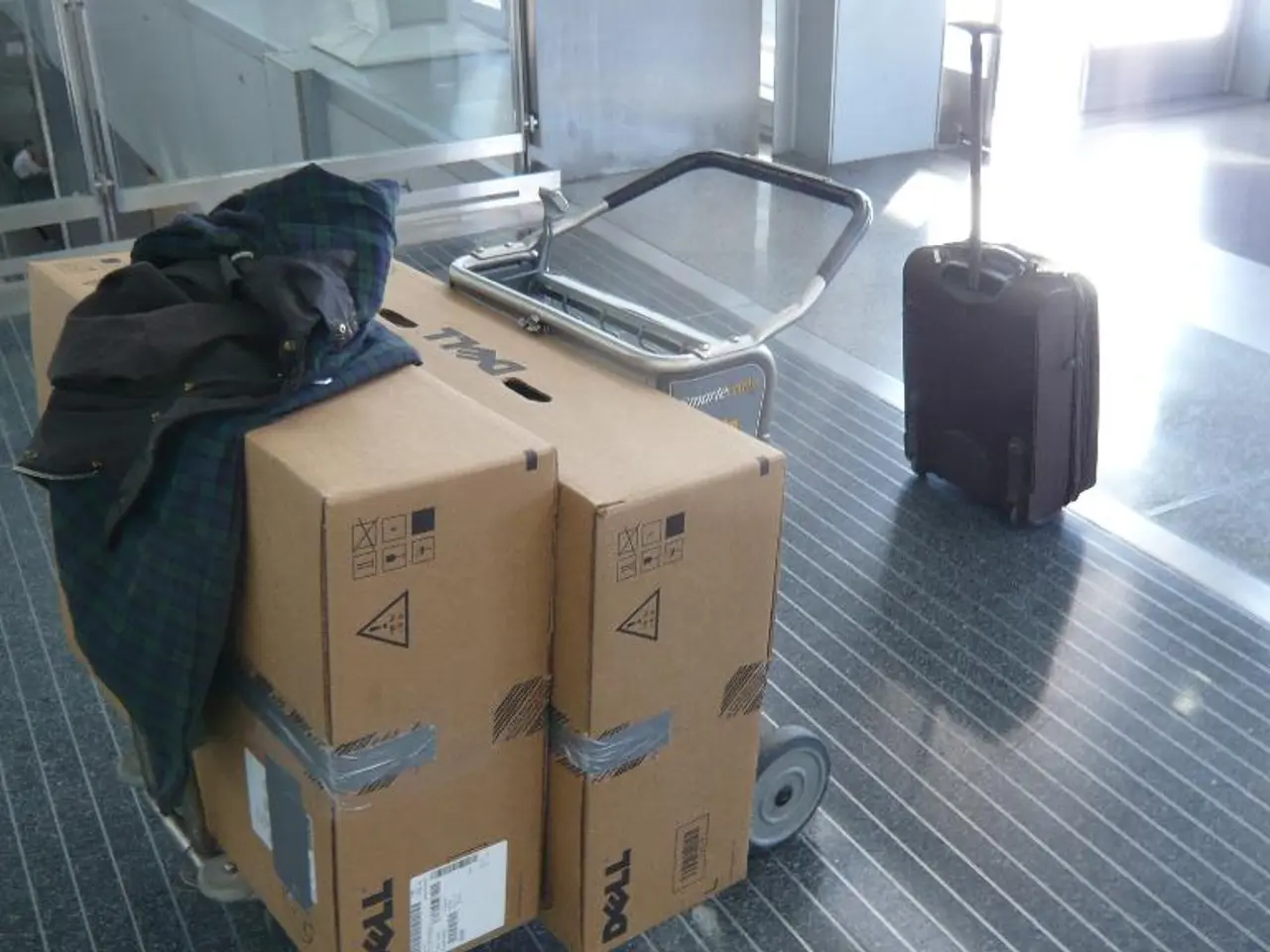EUDR Packaging Rules - Illustrative Scenarios for Crate and Pallet Manufacturers
In the realm of sustainable business practices, traceability platforms are proving to be invaluable tools for print converters, helping them establish their sustainability credentials and gain access to premium markets. One such platform, the EUDR Compliance Platform, is making waves in the industry by streamlining compliance with the EU Deforestation Regulation (EUDR).
The EUDR, which applies to companies placing on the EU market packaging made of paper, cardboard, and pulp as independent products, requires these companies to prove that these materials are deforestation-free. However, packaging used solely to protect or carry another product is exempt from EUDR obligations. Customs classification determines whether packaging is a 'relevant product' or not, and under Rule 5(b) of the Combined Nomenclature, packaging classified together with the product it carries is considered solely for supporting, protecting, or carrying that product and thus excluded from the EUDR's scope.
When packaging becomes a 'relevant product' under Annex I of the EUDR, it is subject to due diligence, even if it is made of recycled content. Exporters and manufacturers should distinguish between products sold independently and those used purely as packaging to avoid penalties and position themselves as trusted, compliant partners in EU supply chains.
The EUDR Compliance Platform automates DDS preparation and submission, providing real-time updates on EU regulations, and integrates with ERP systems for smooth reporting. It links each paper or wood input to its source plot with AI-assisted geotagging and validation, ensuring traceability and transparency in the supply chain.
Packaging manufacturers selling packaging as standalone products must treat them as relevant commodities under EUDR and gather plot-level data for the wood or paper pulp and submit a DDS before export or EU placement. Partial virgin pulp in recycled paperboard or cartons requires a DDS. Exporters and importers do not need to file a DDS for standard packaging if it is only supporting or protecting the product.
Digital tools, such as the EUDR Compliance Platform, can help exporters attach geotagged data to each pallet batch for traceability. Reused or rented pallets are exempt from EUDR obligations, while pallets repaired using new wood components are subject to EUDR requirements only for the new material.
In special scenarios for packaging companies, selling packaging materials in bulk as inventory, using custom-printed cartons, and exporting new wooden pallets as a product all require careful compliance consideration. Companies should consult with experts to simplify EUDR compliance for their packaging operations.
Understanding Rule 5(b) allows exporters and manufacturers to focus their compliance efforts on the actual commodities, not their transport materials. Recycled paperboard or cartons made entirely from recycled materials are exempt from EUDR requirements. When packaging is sold as a standalone product, companies must provide a Due Diligence Statement (DDS), geolocation data for raw materials, and maintain five-year audit records.
By leveraging the EUDR Compliance Platform, businesses can navigate the complexities of the EUDR with ease, ensuring they are compliant and competitive in the European market.
Read also:
- Uncovered in a Danish cellar, a 130-year-old butter additive harbors bacteria dating back to the 1890s.
- Duties and Responsibilities of a Caregiver for Dementia Patients (A Simplified Handbook)
- Bisphosphonates and Osteoporosis: An Overview and Additional Information
- Bipolar depression's characteristics and symptoms explained





